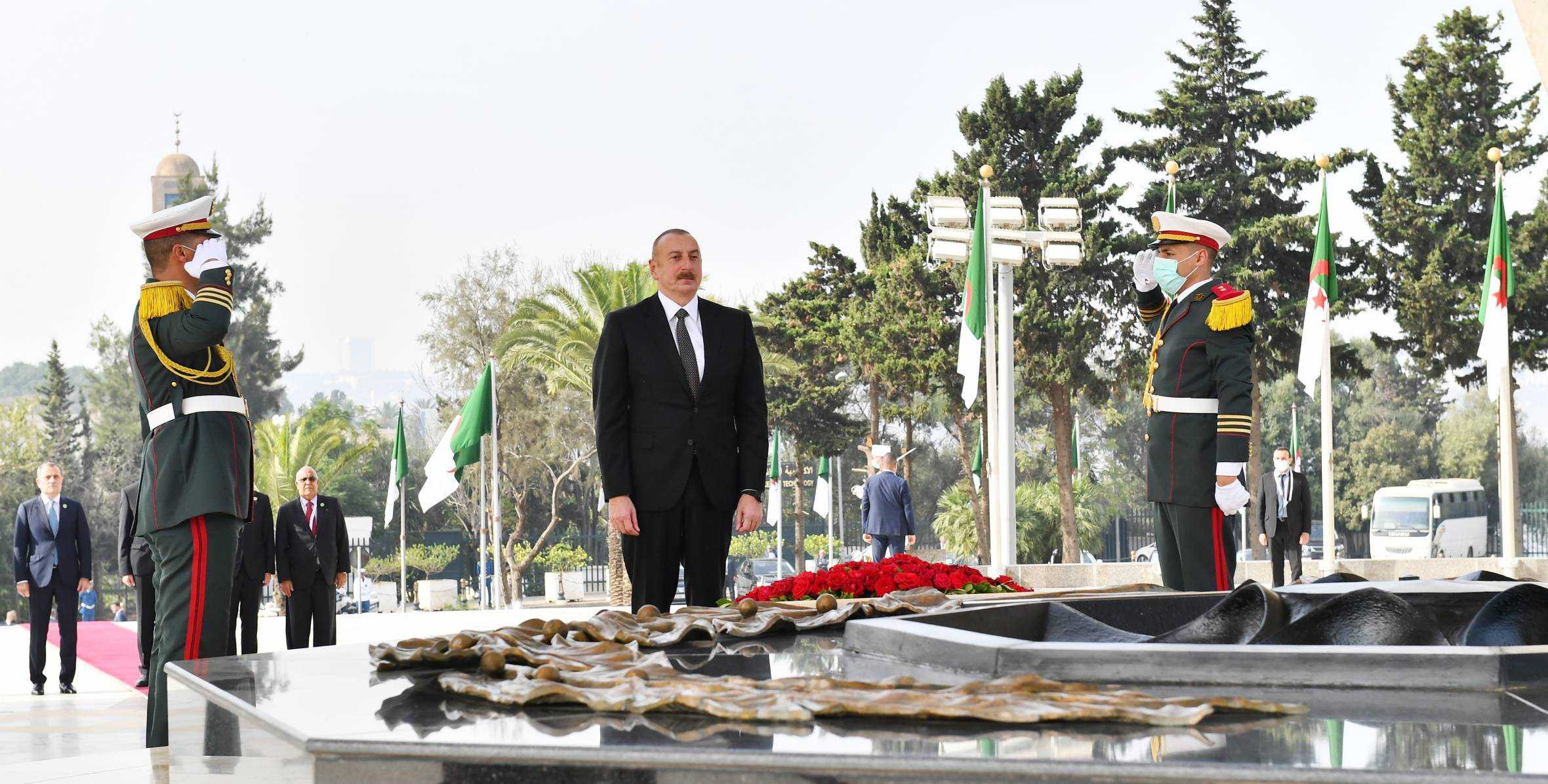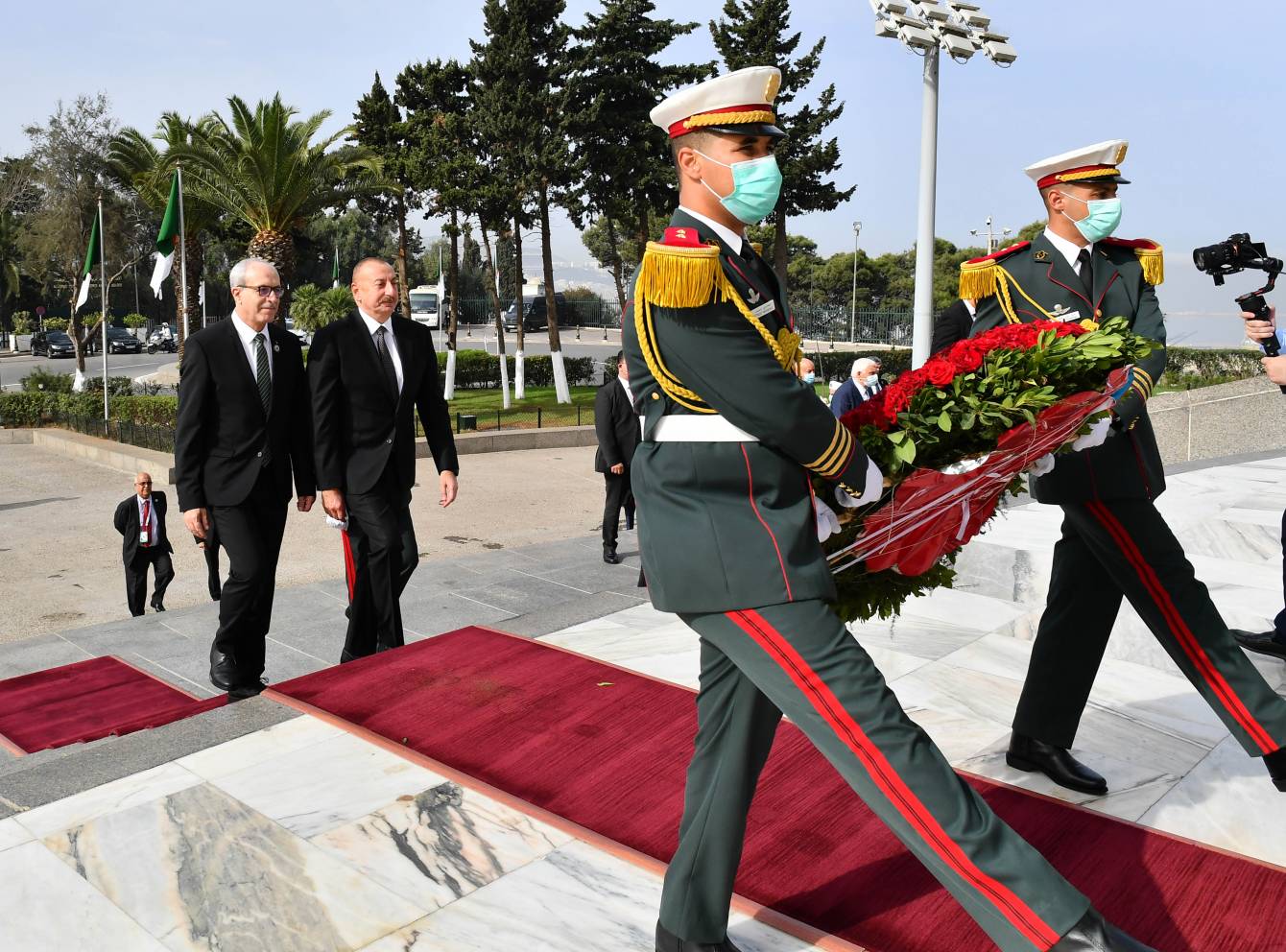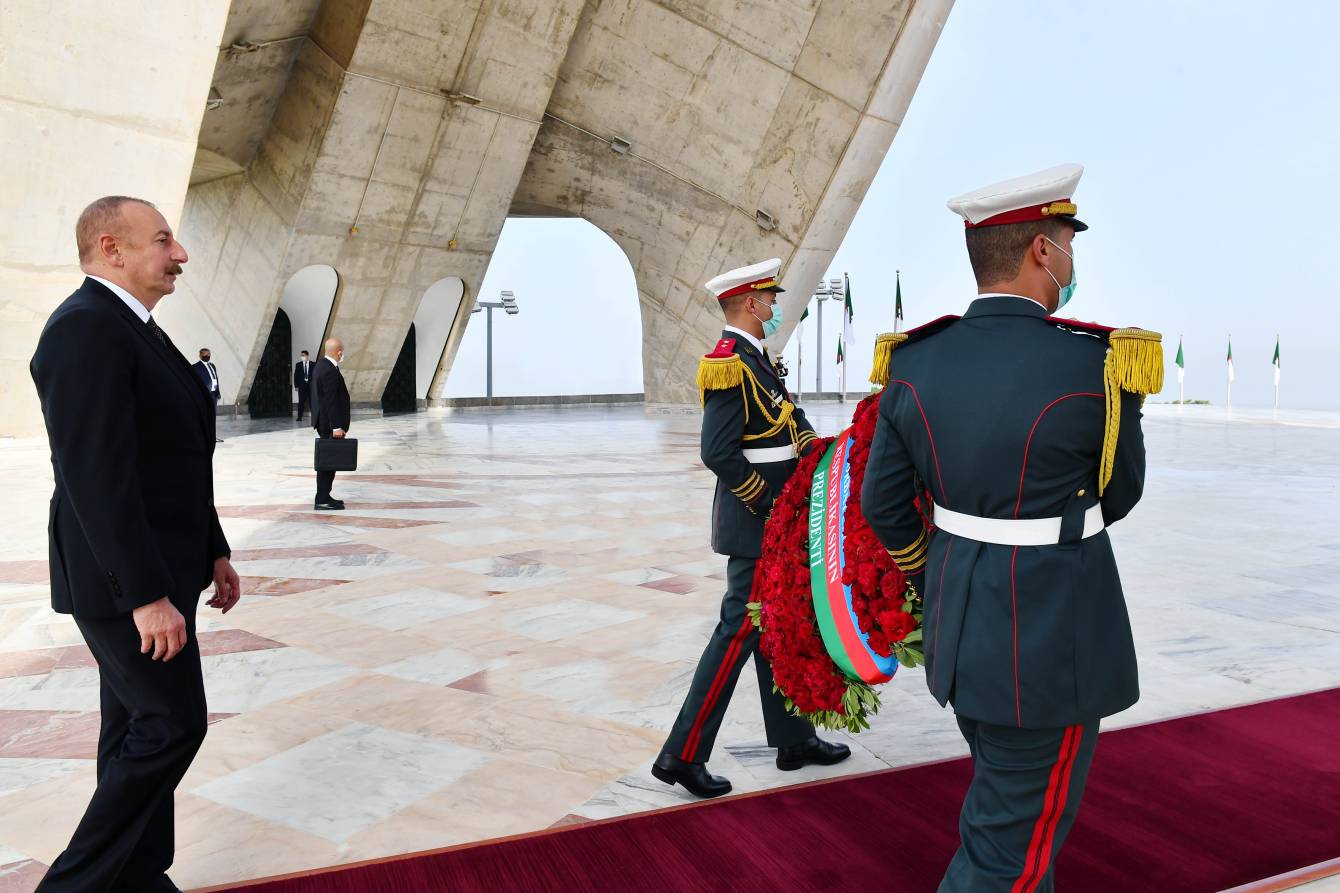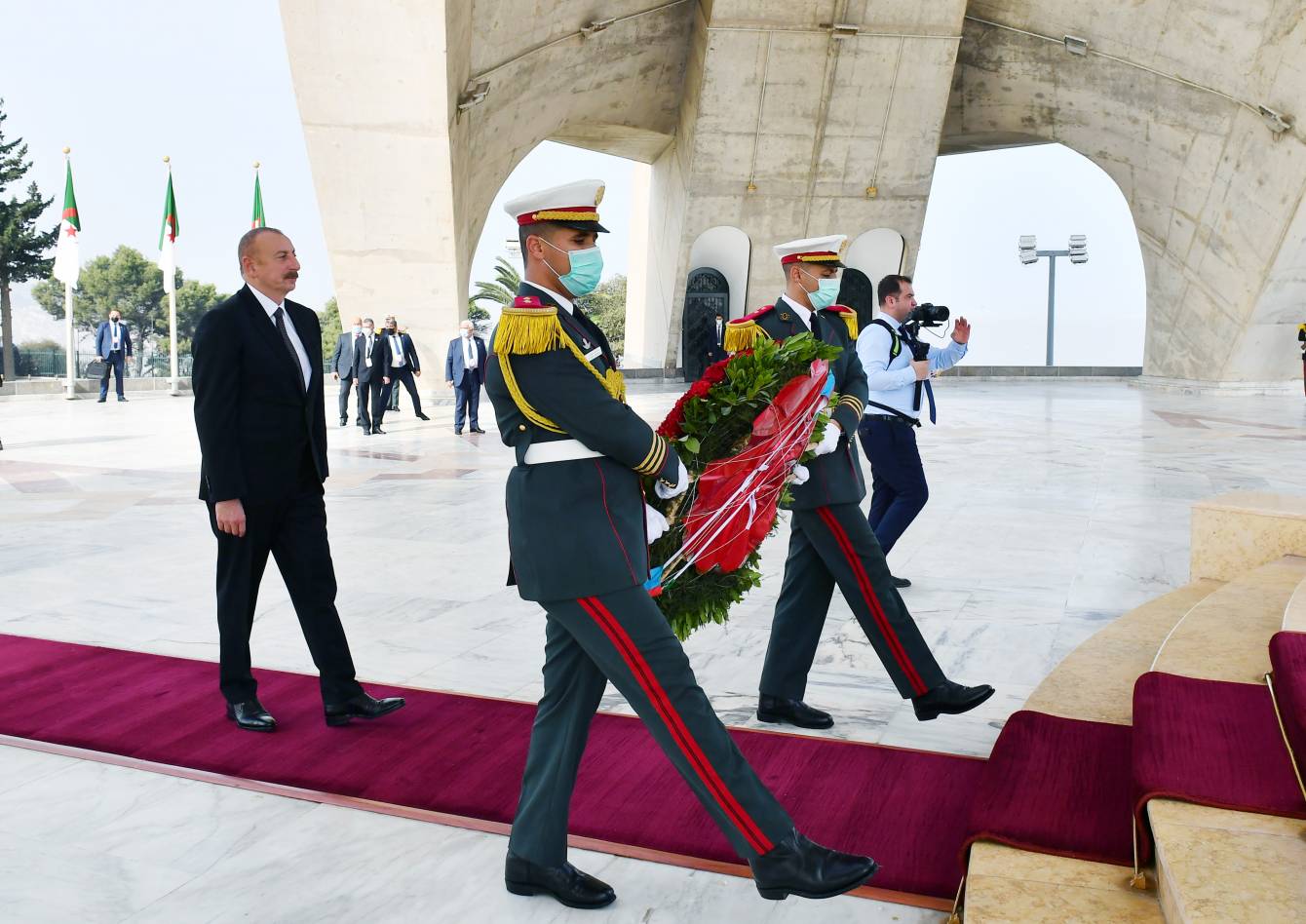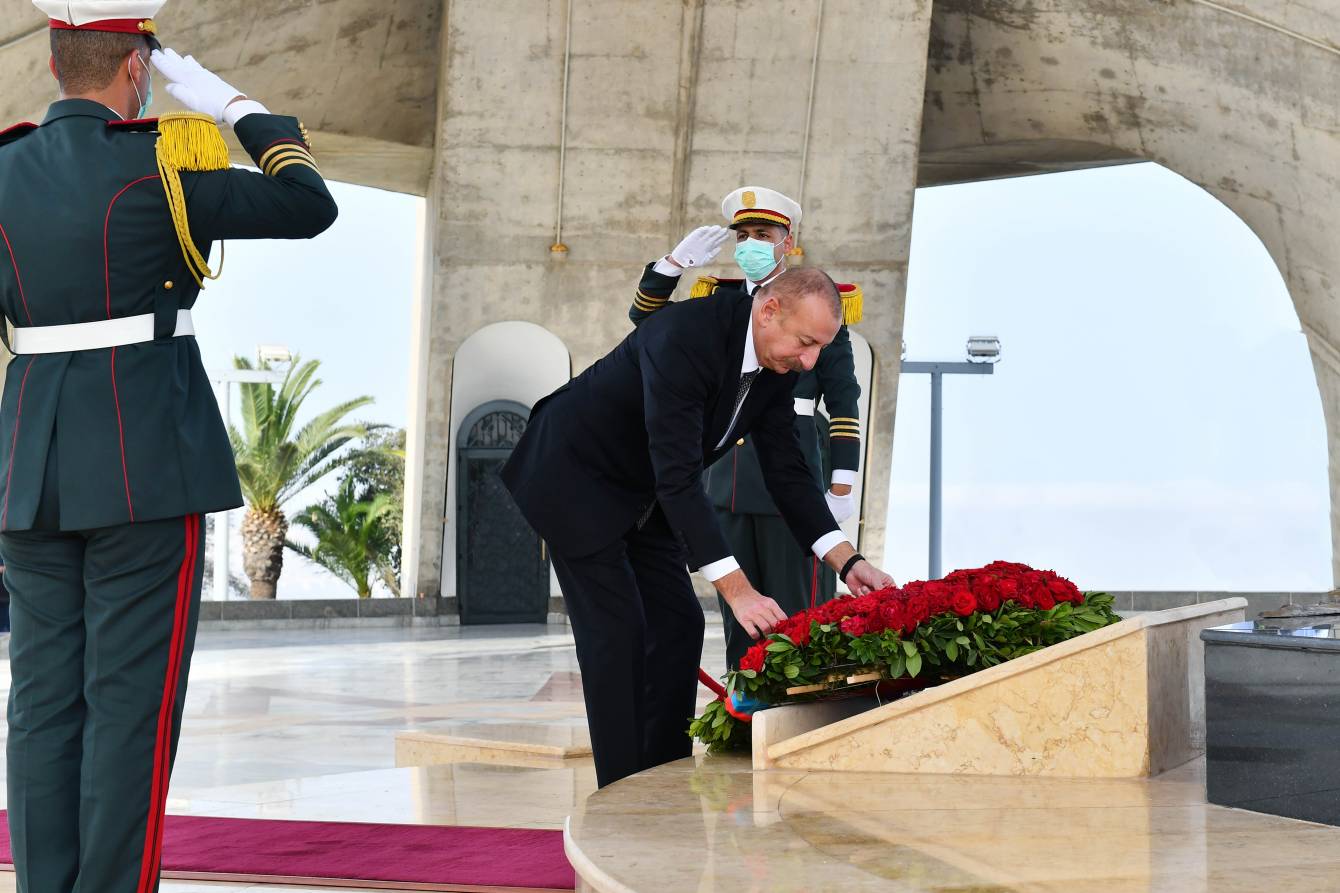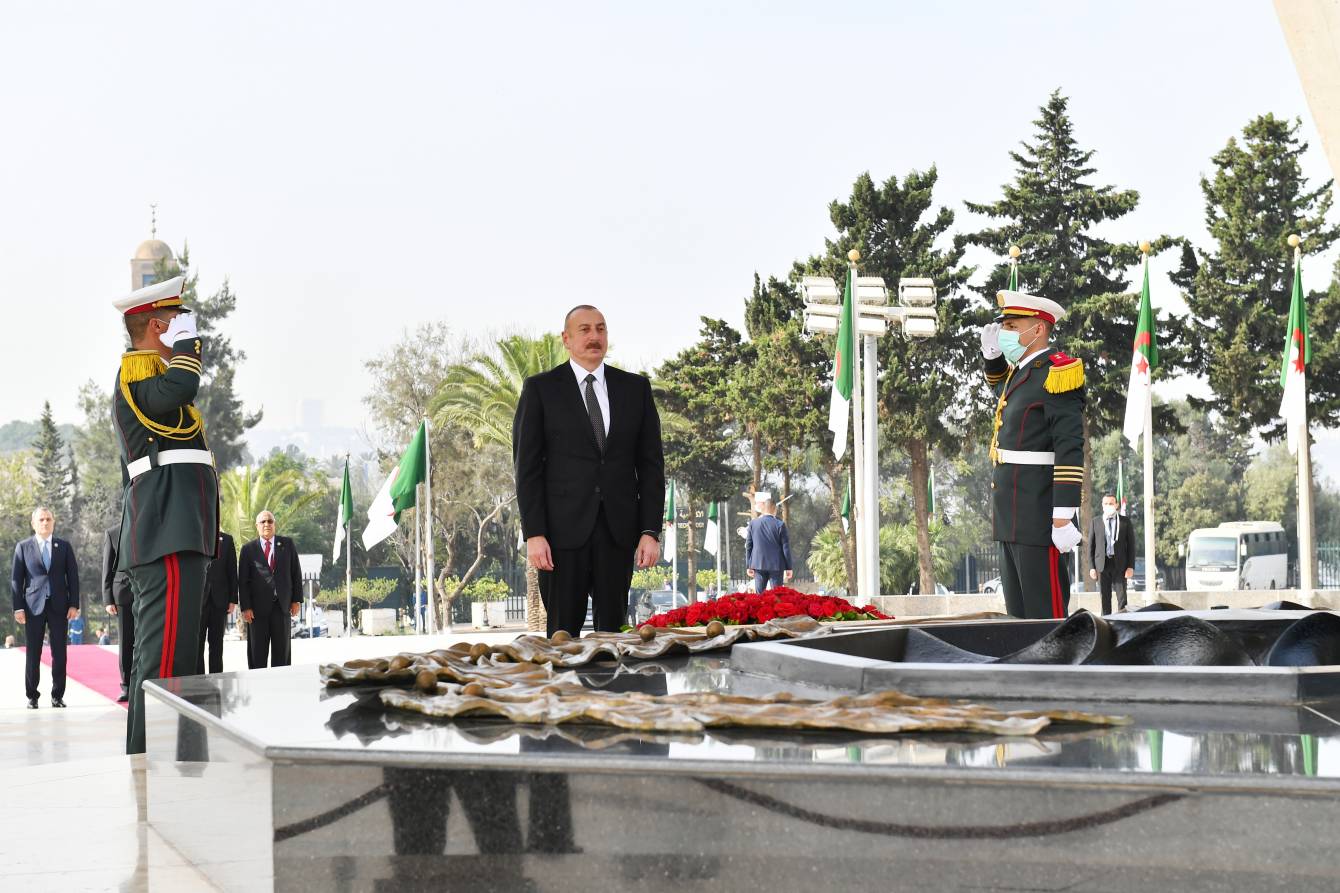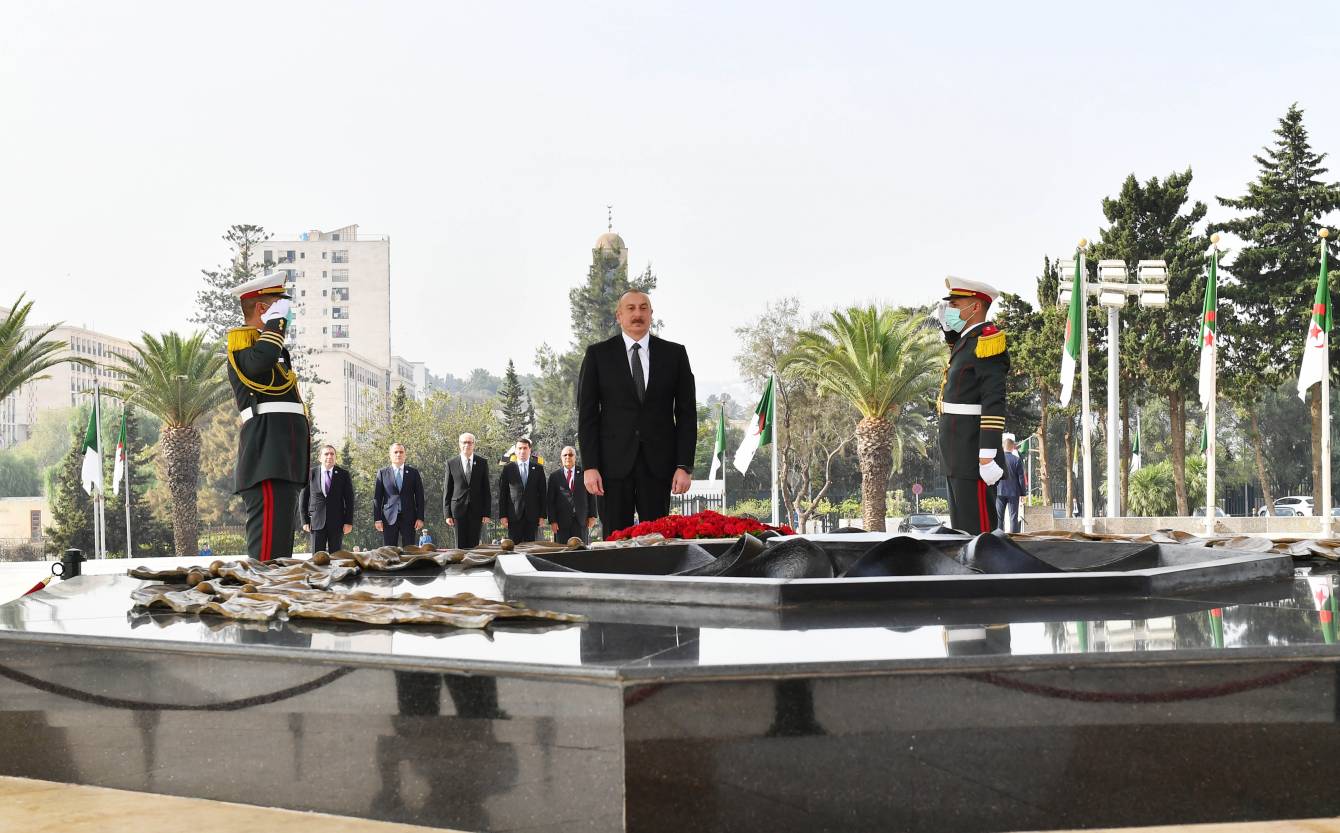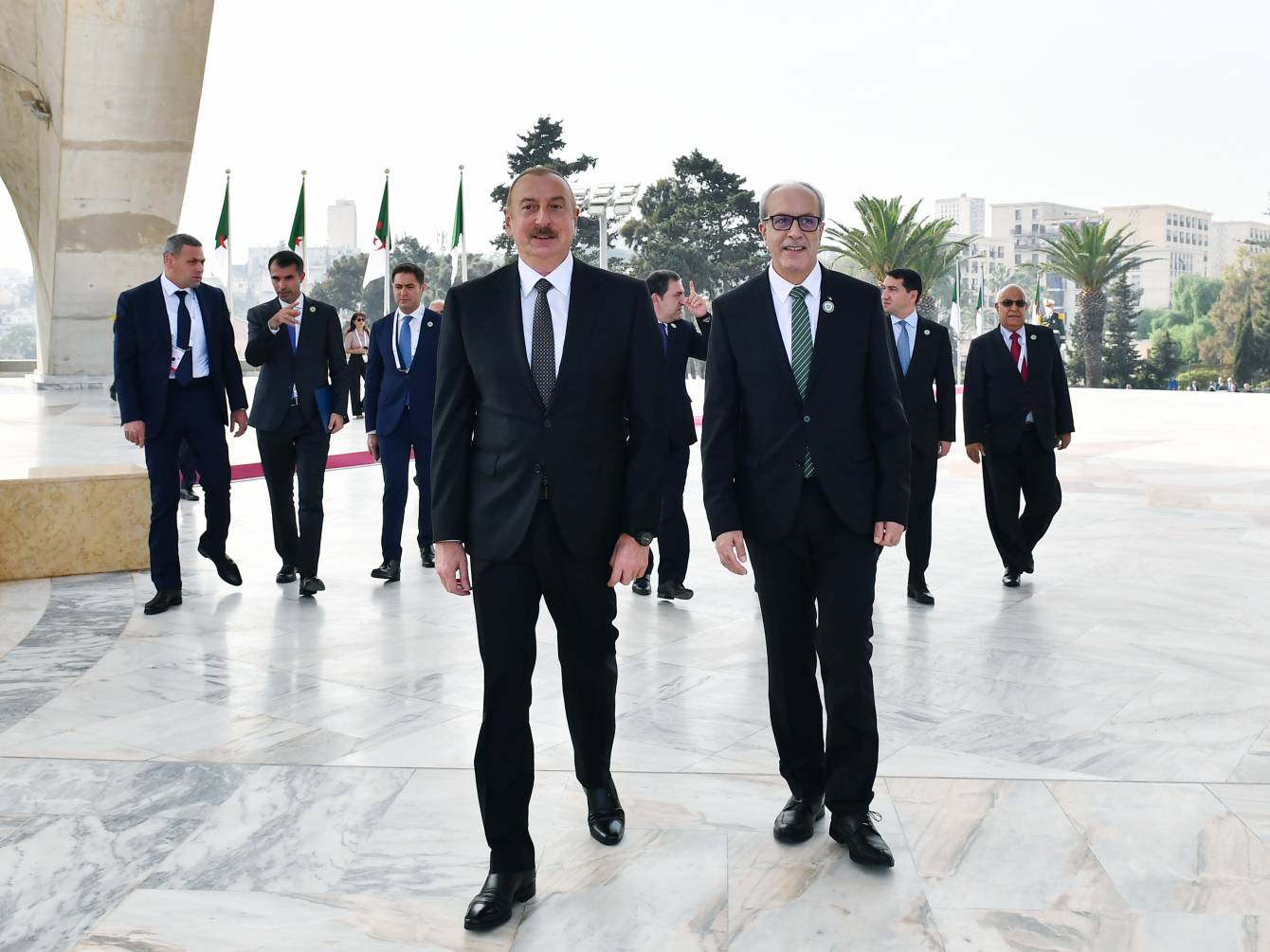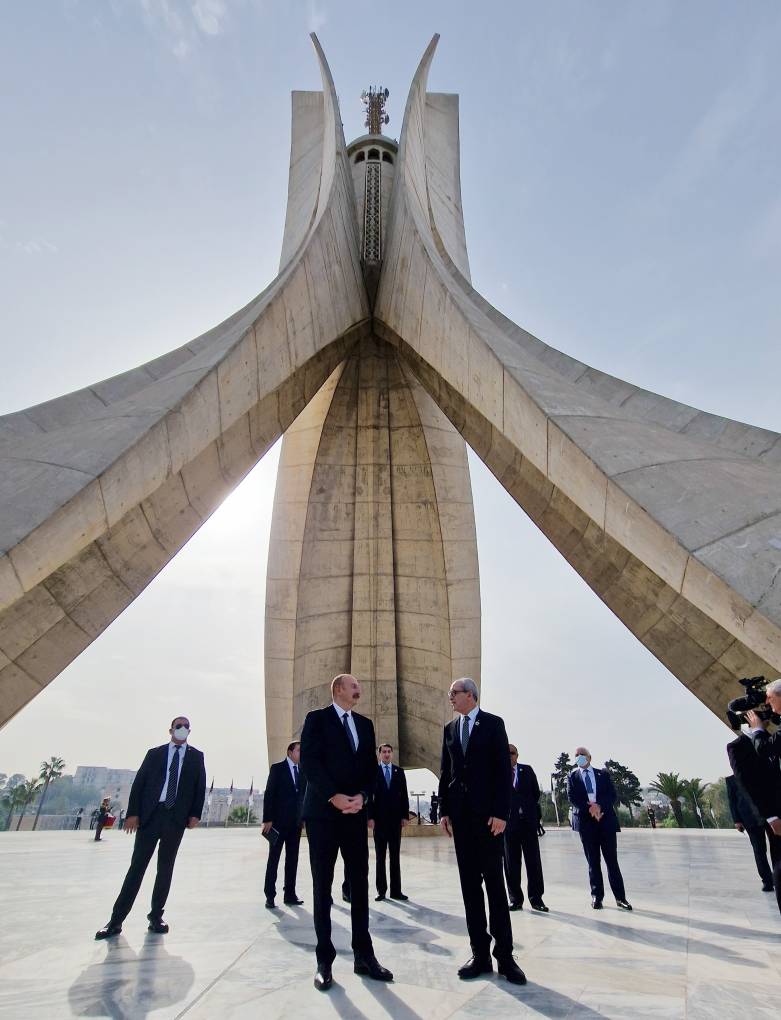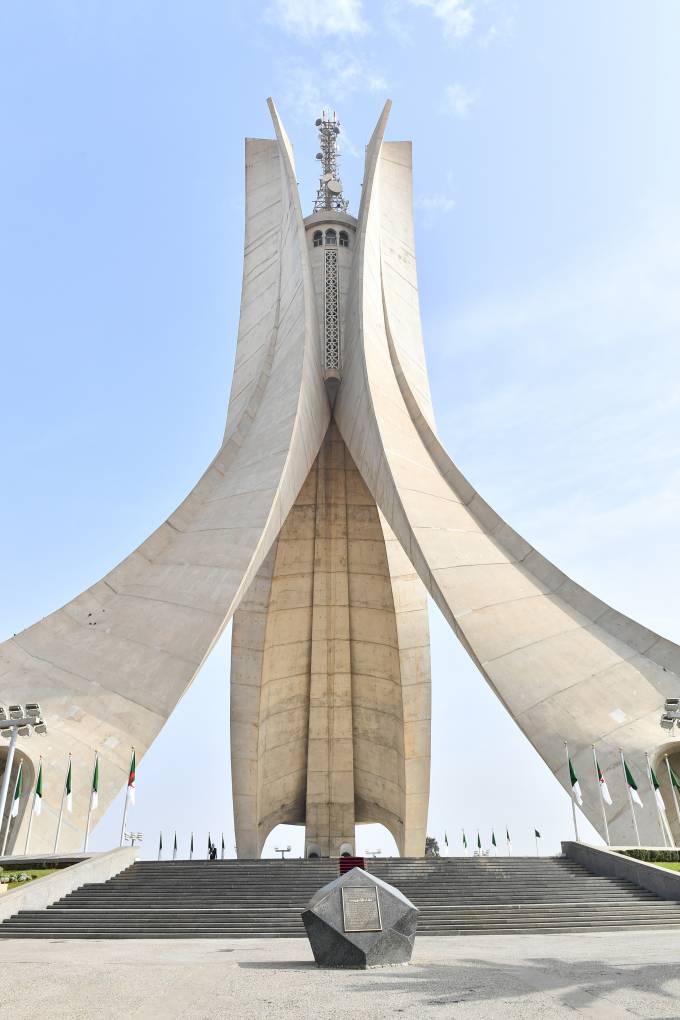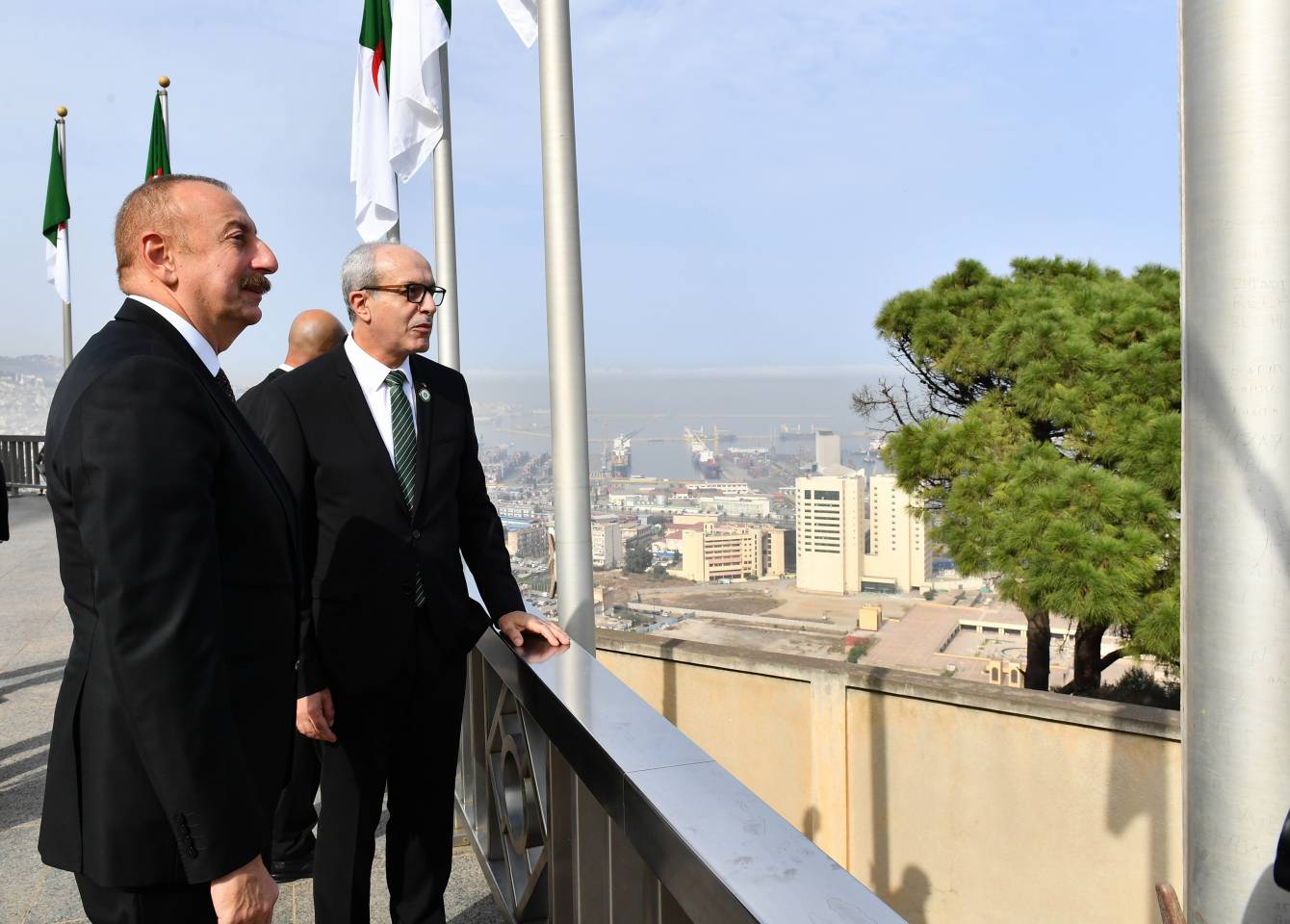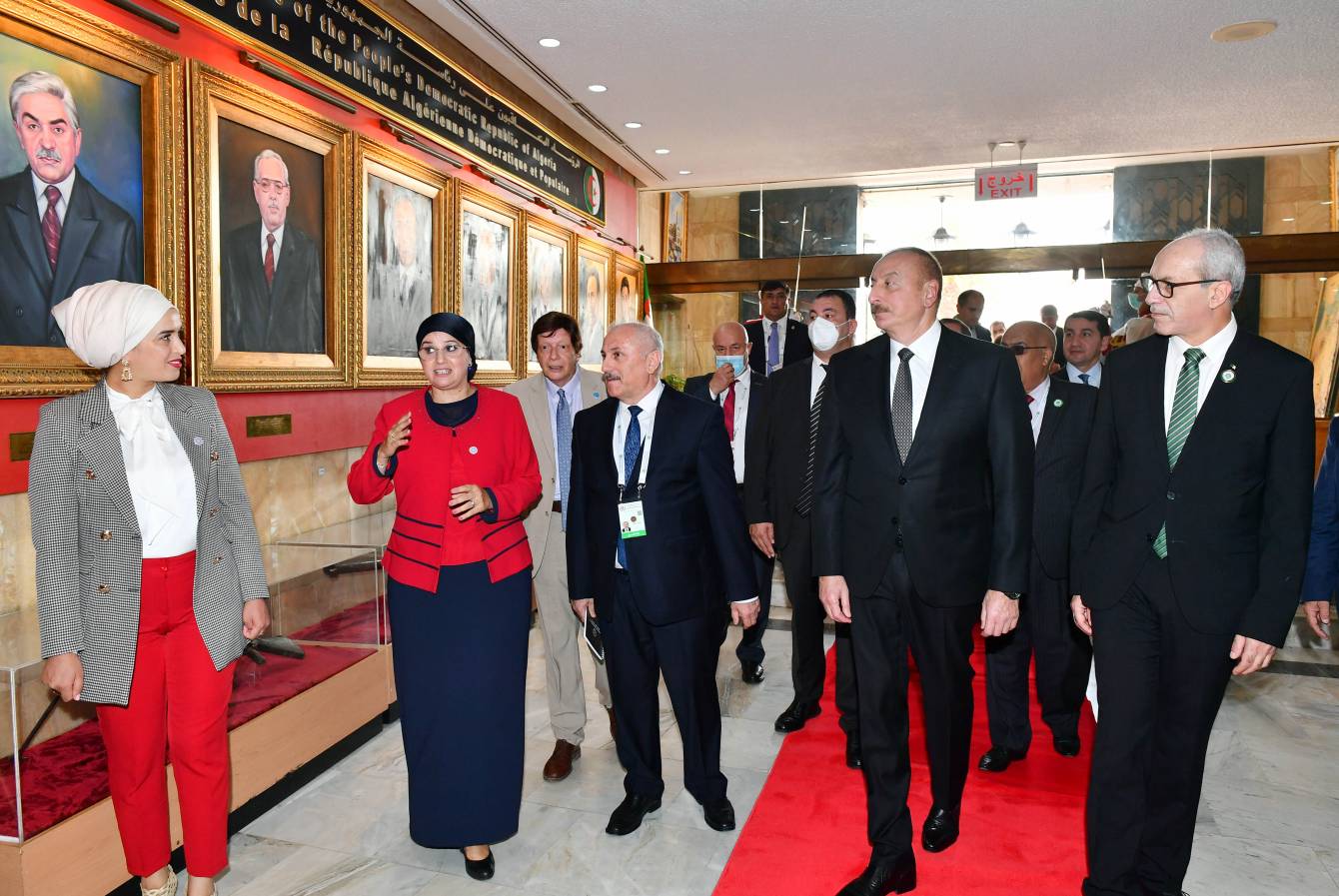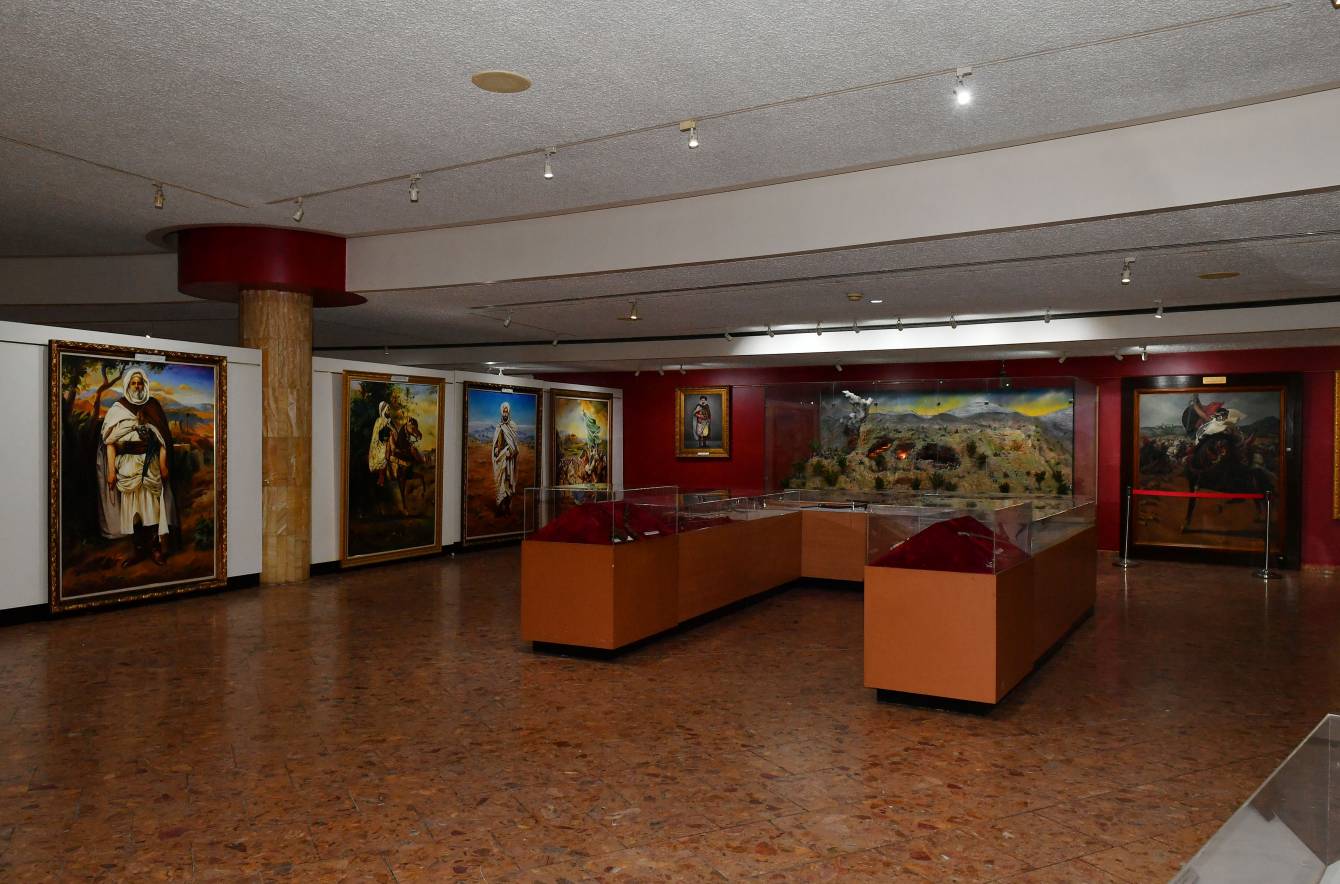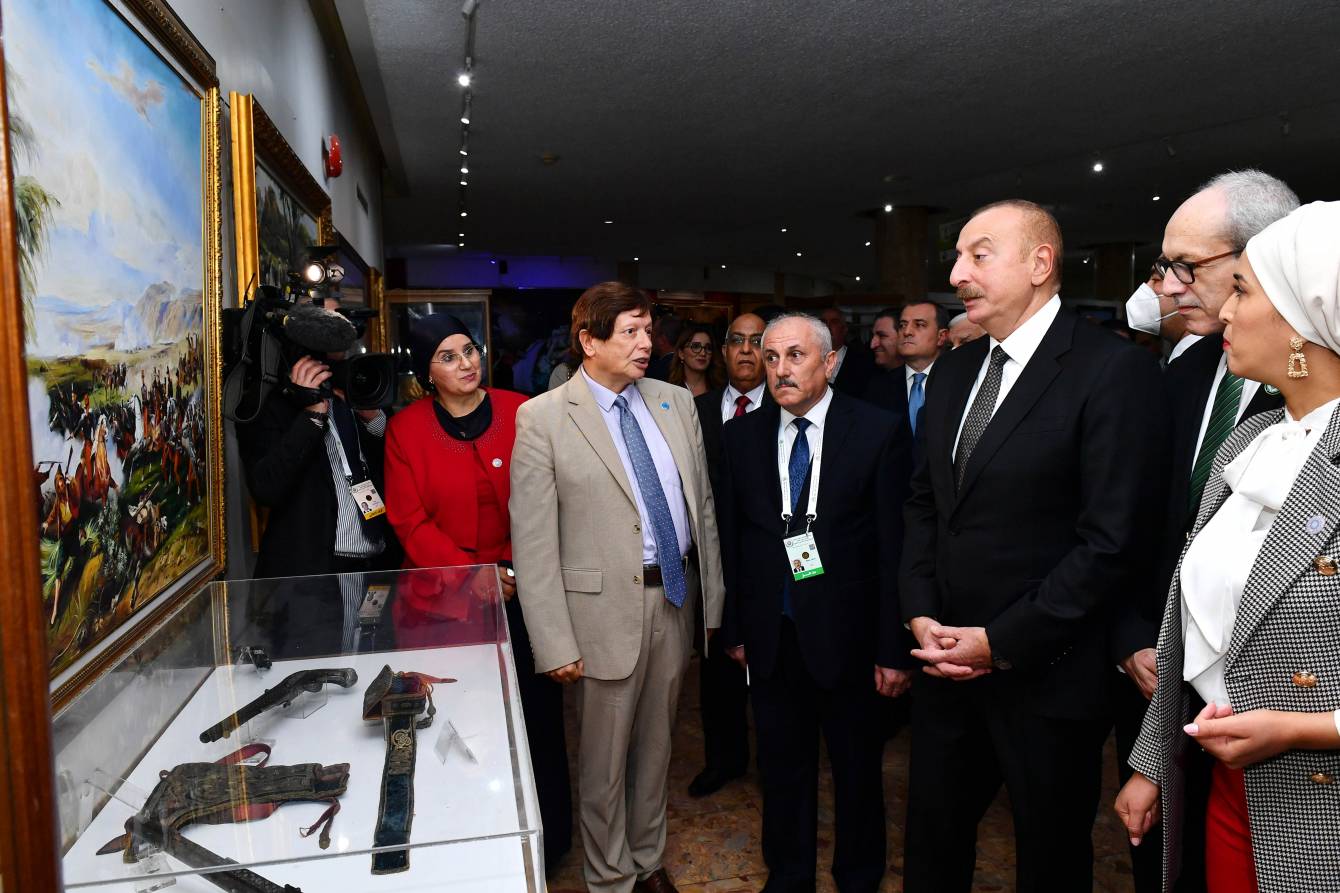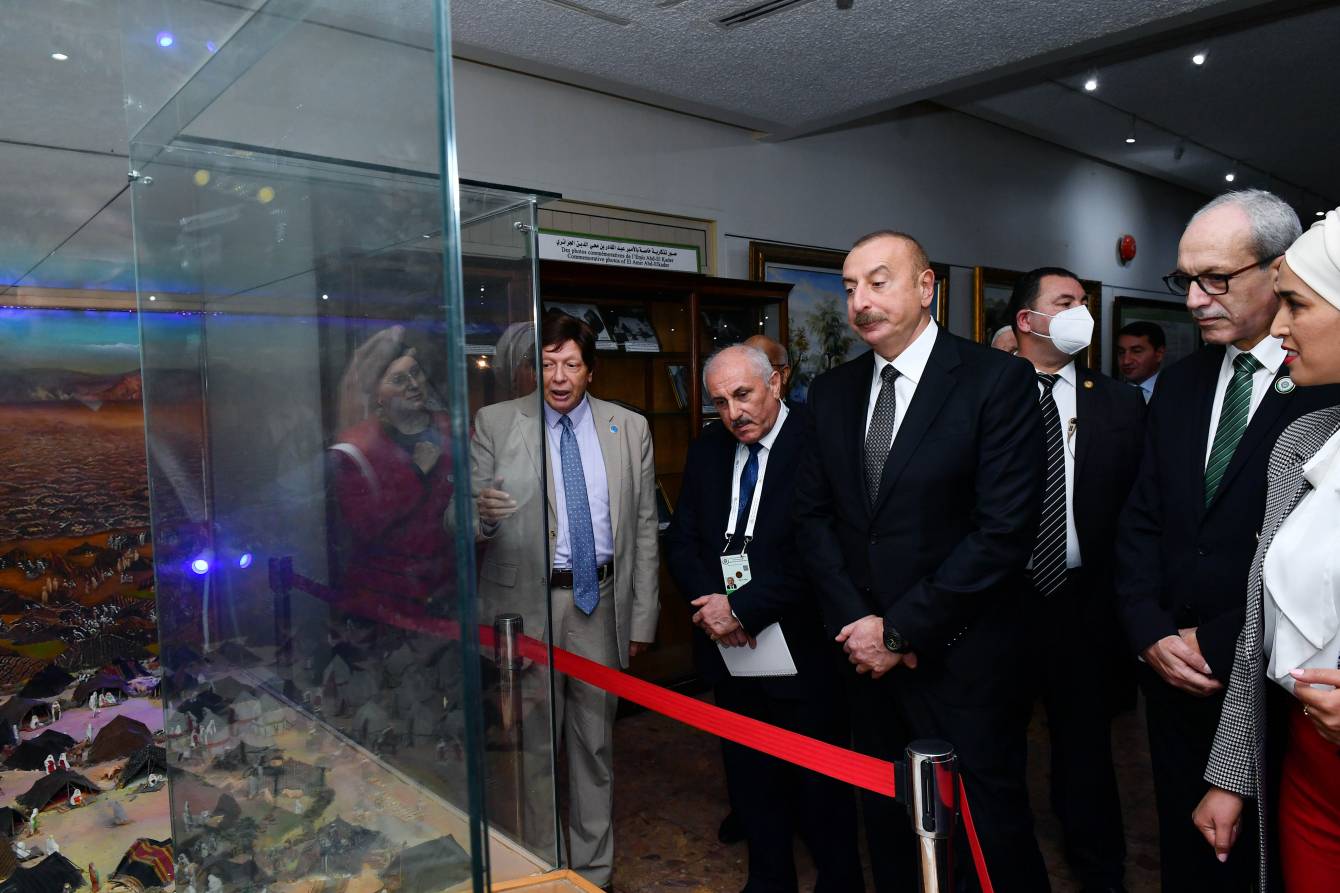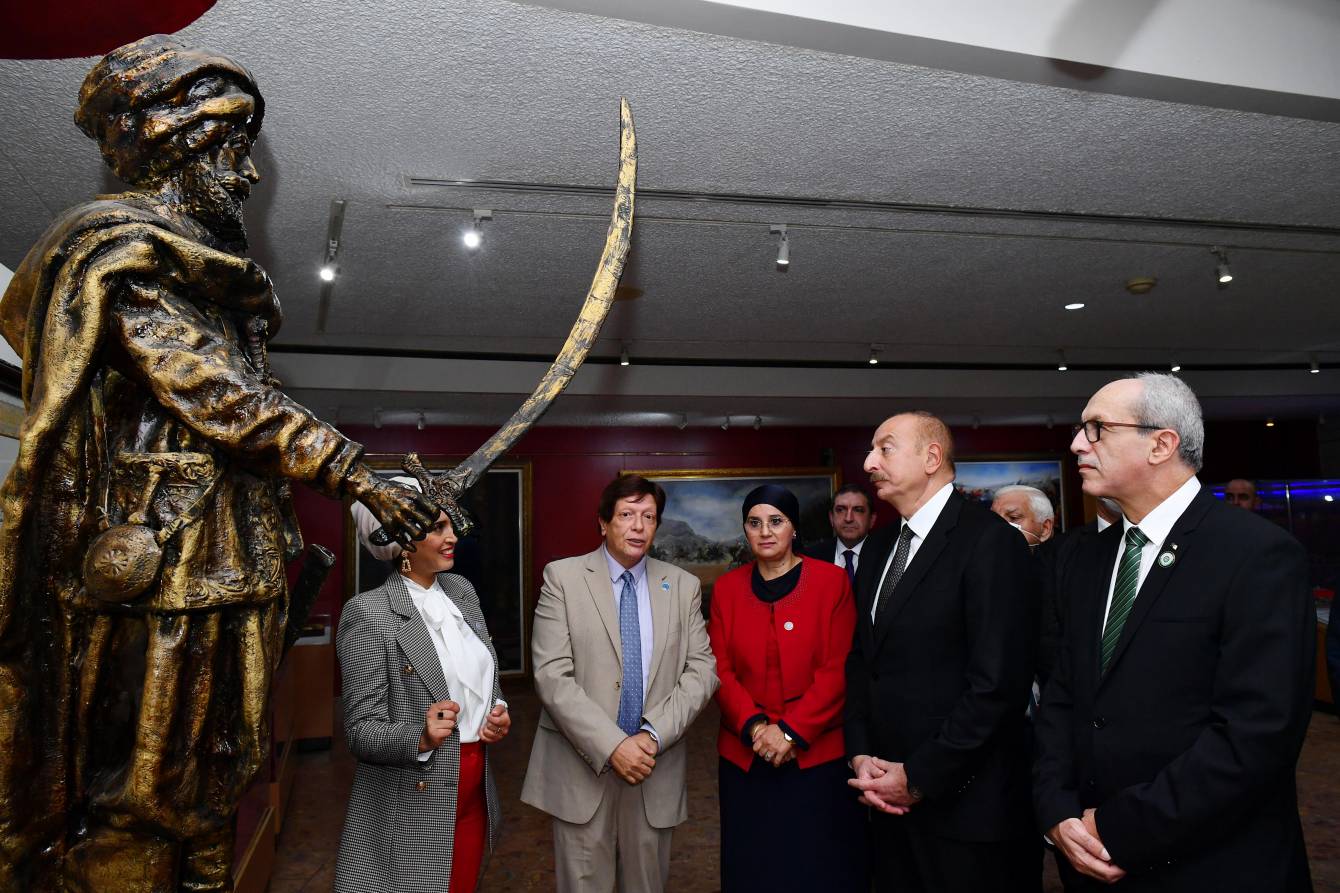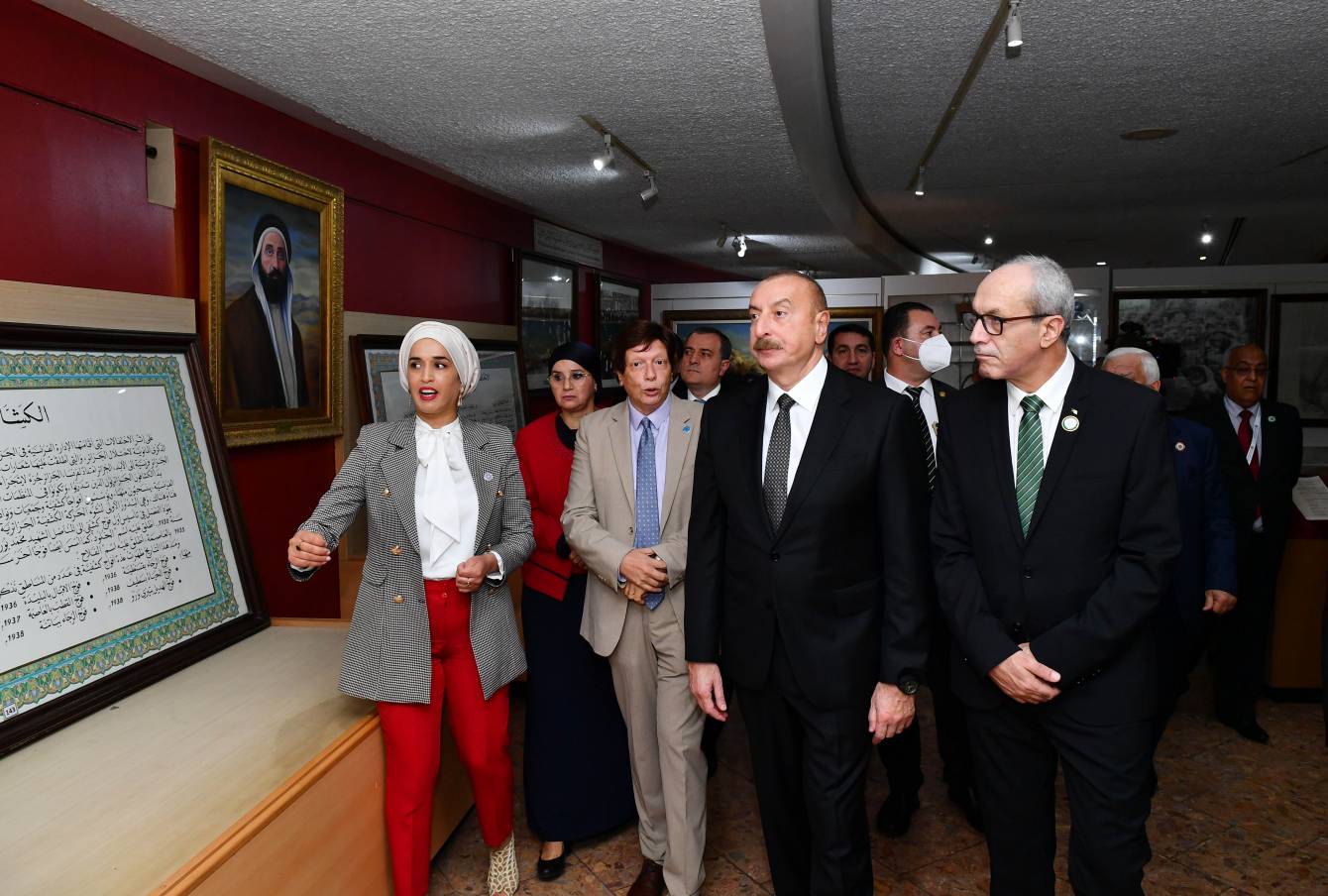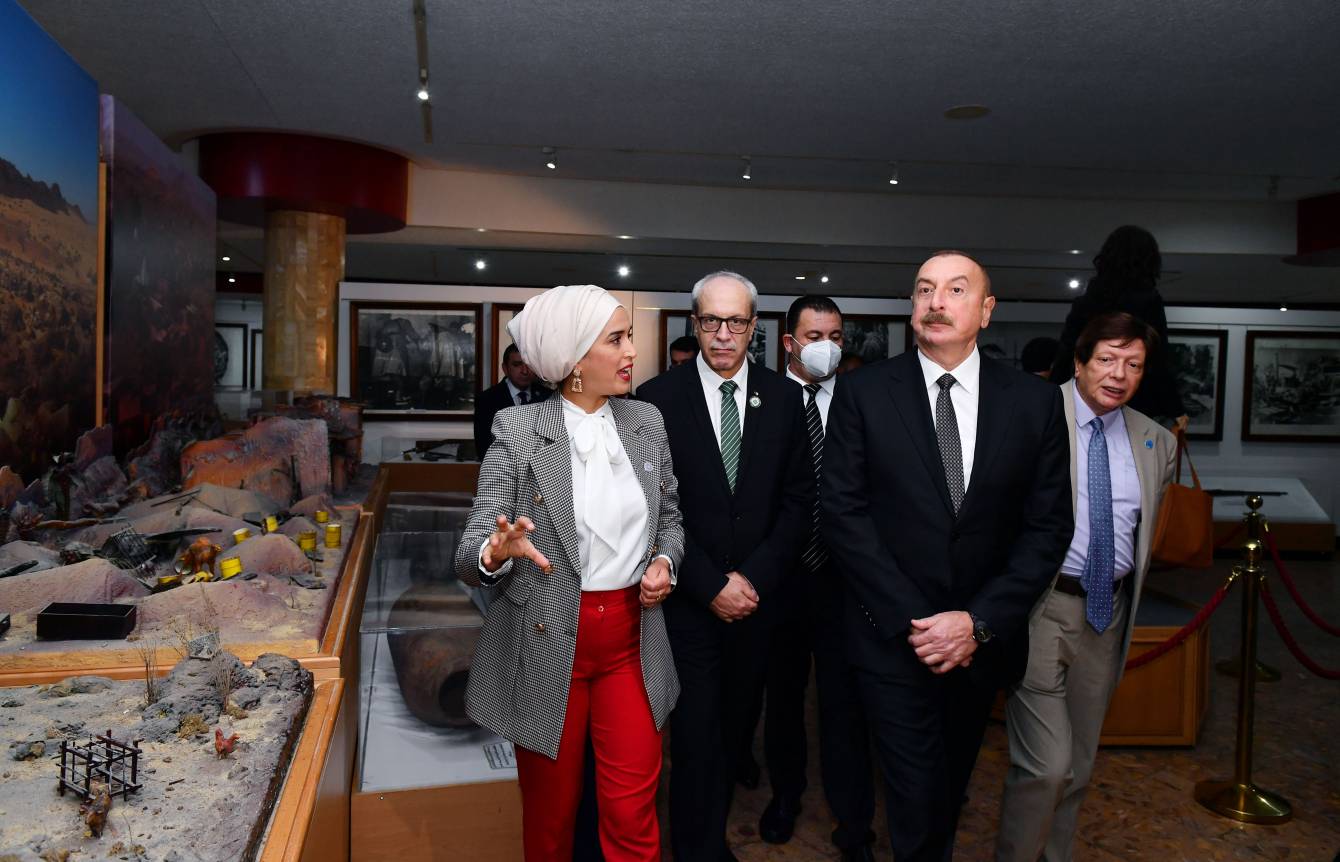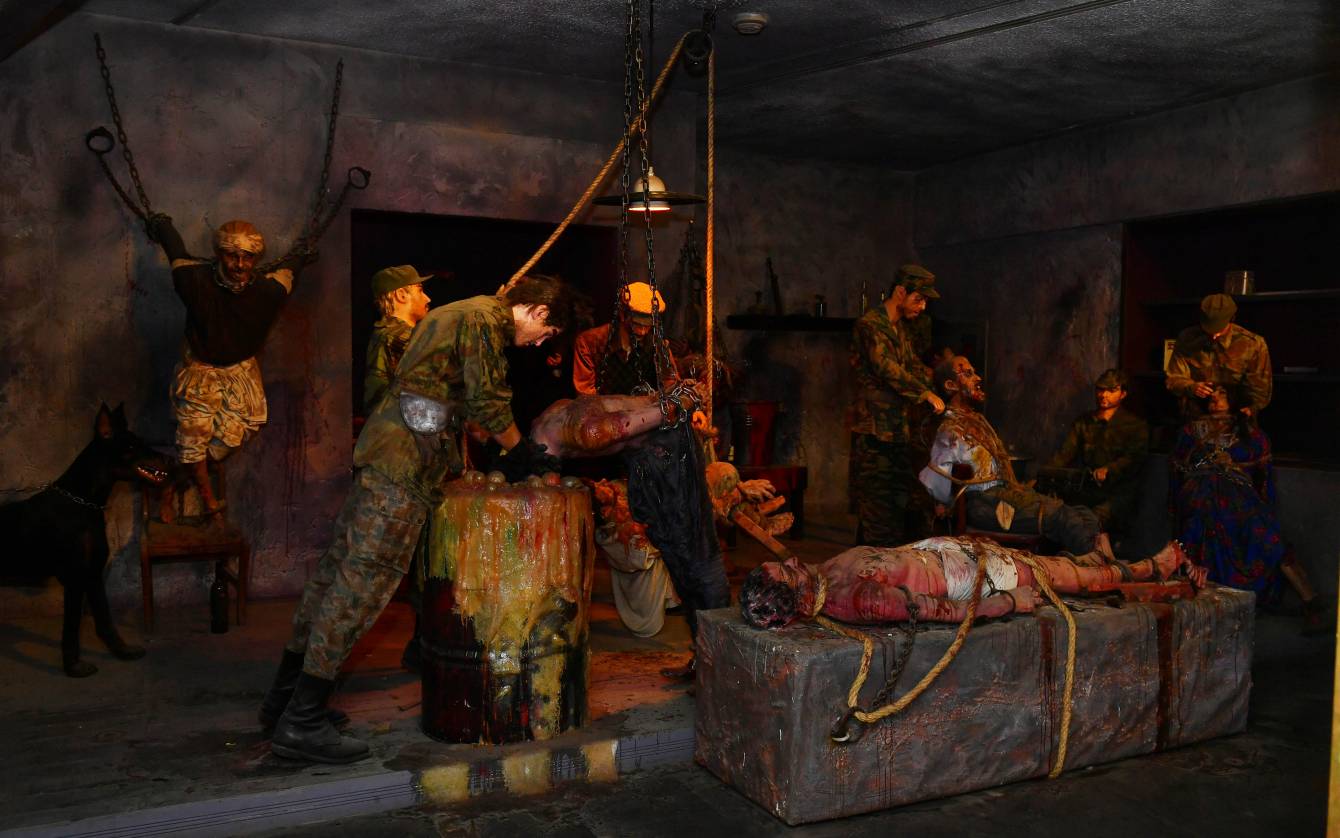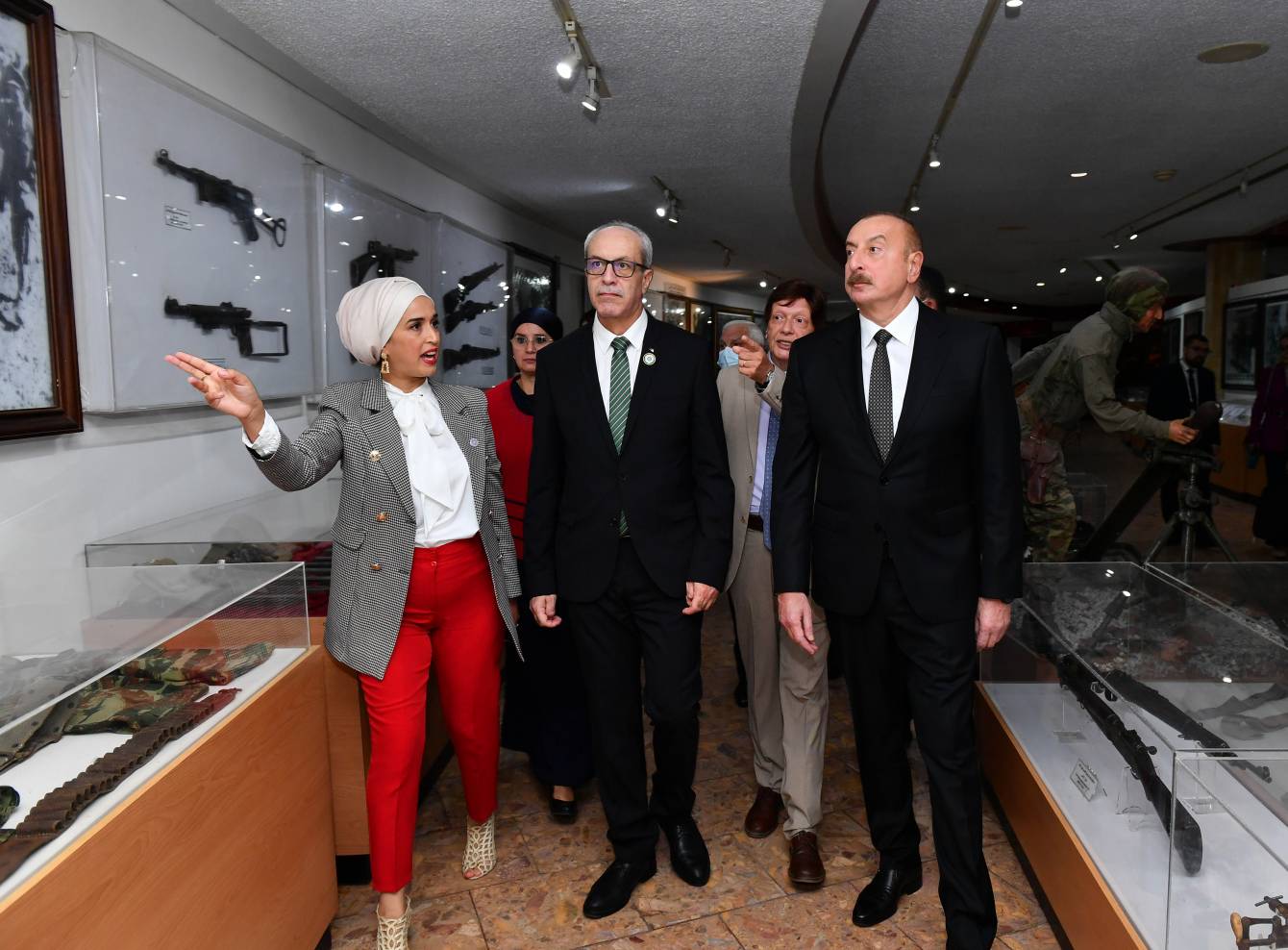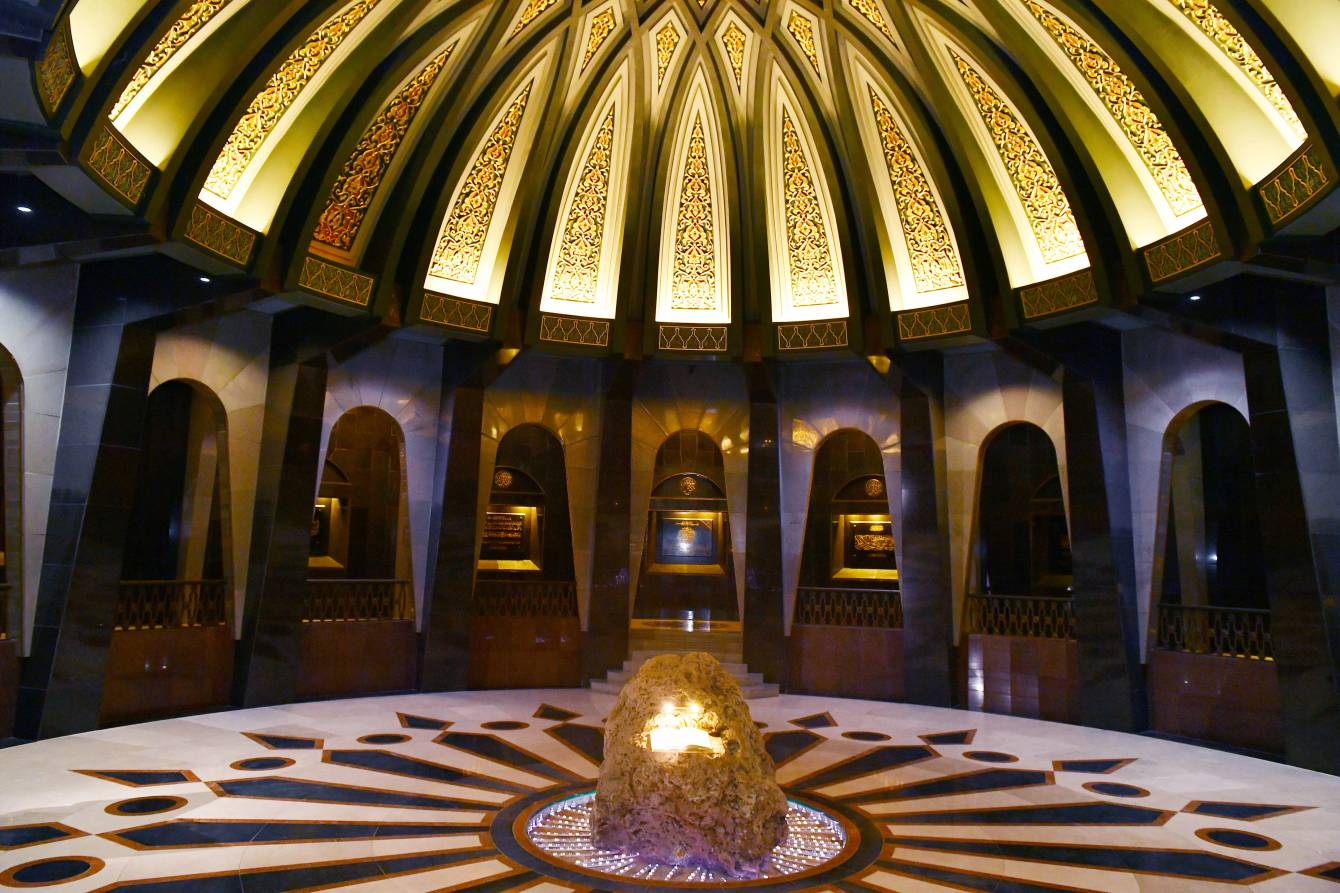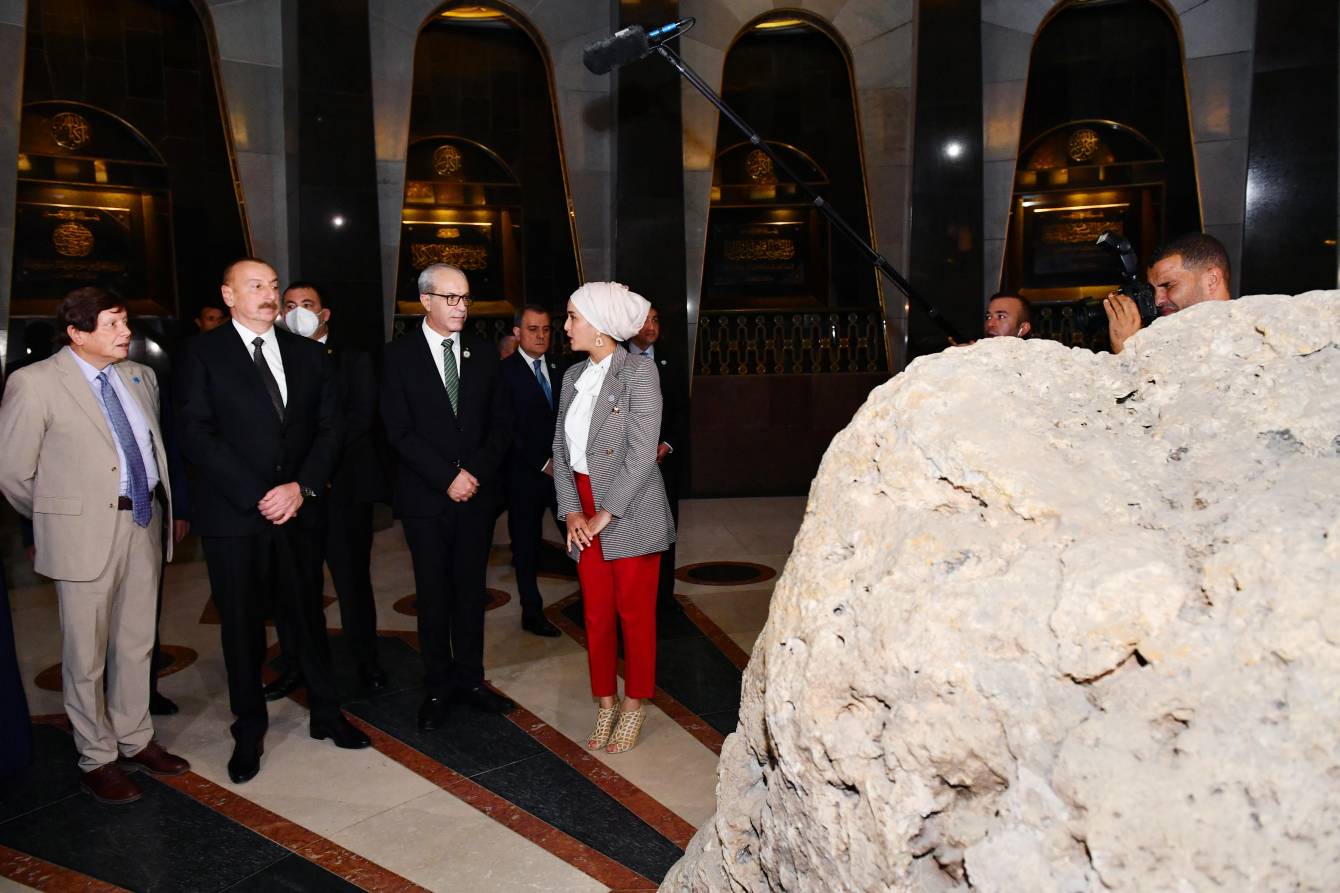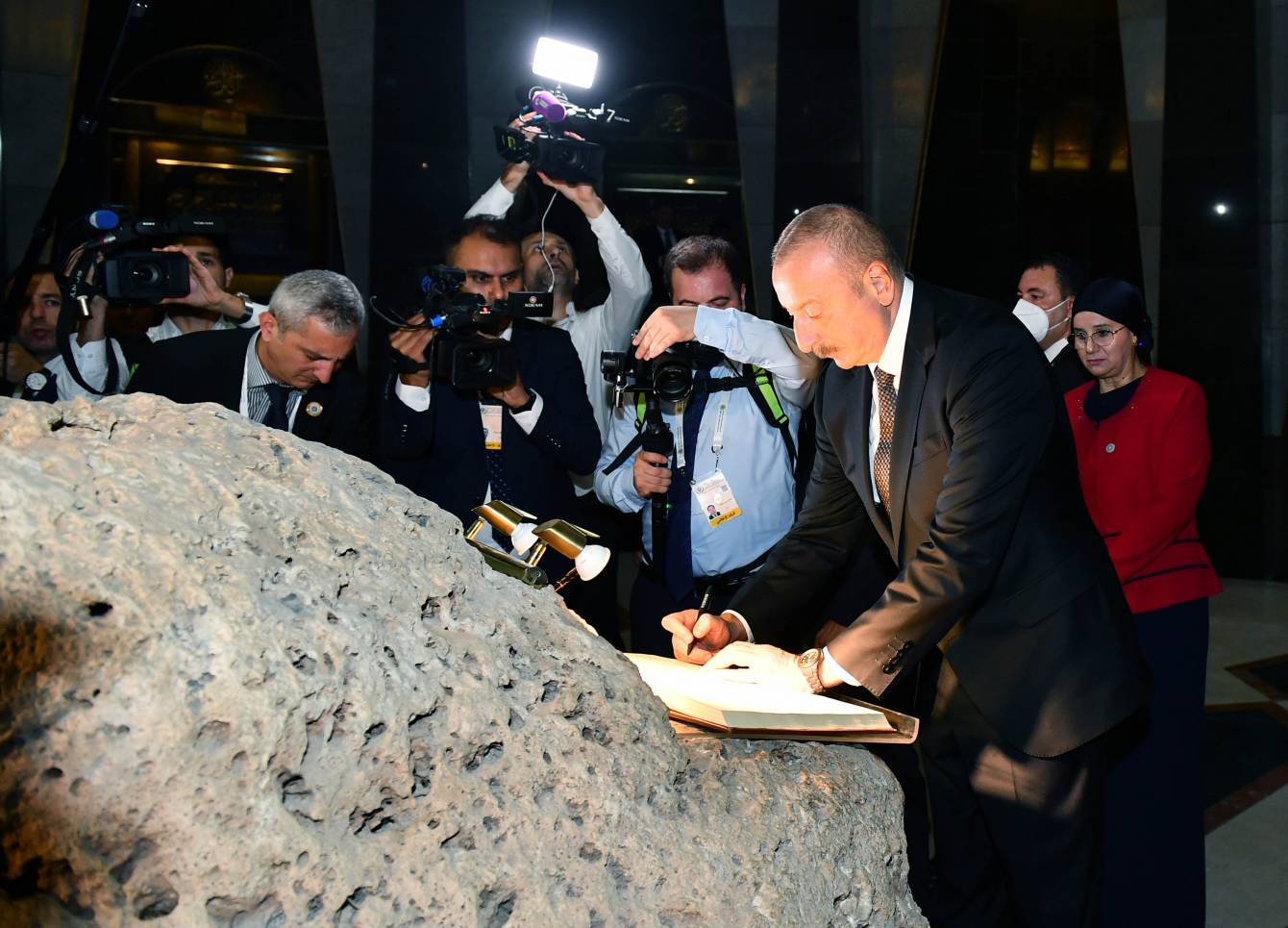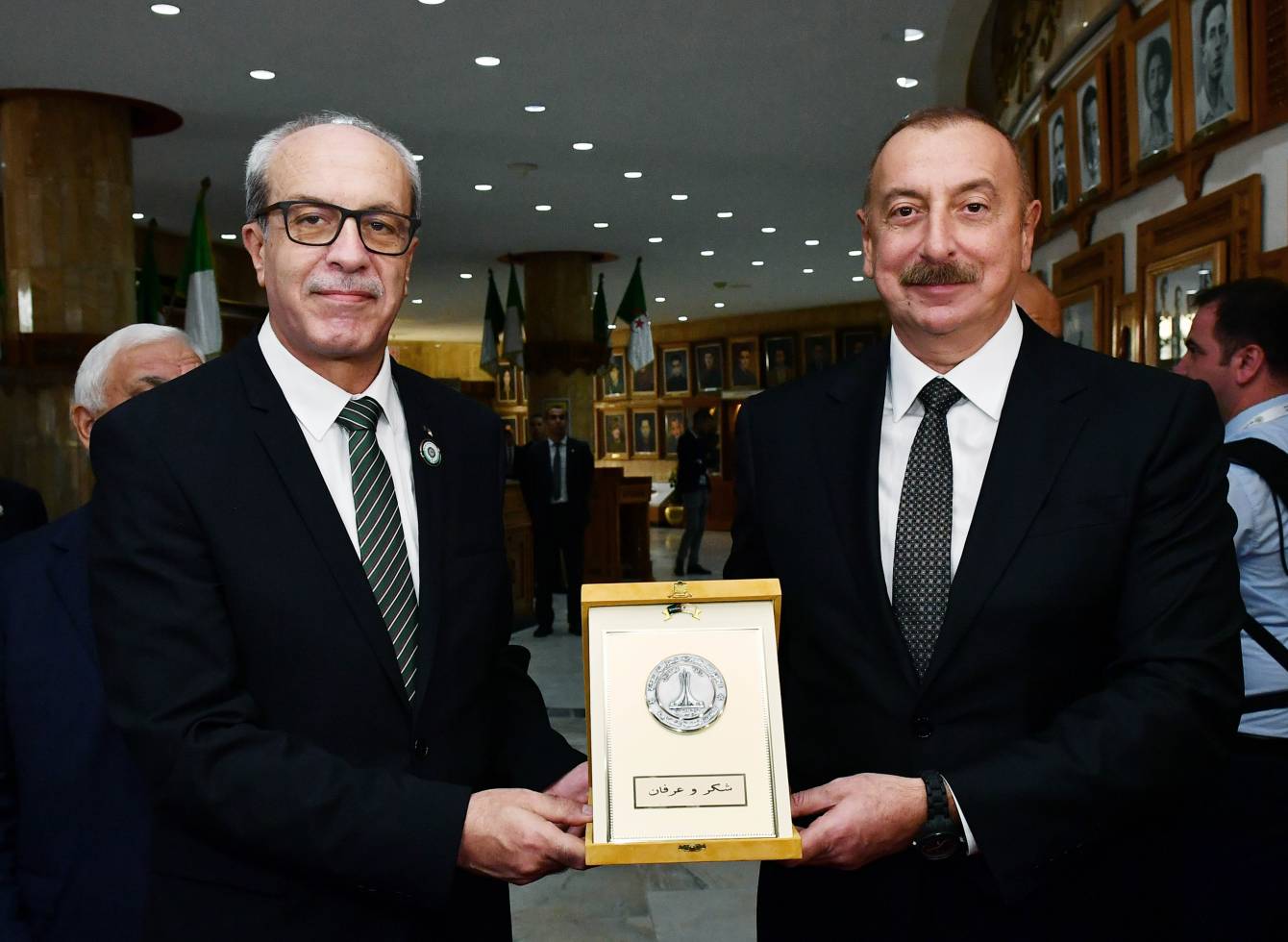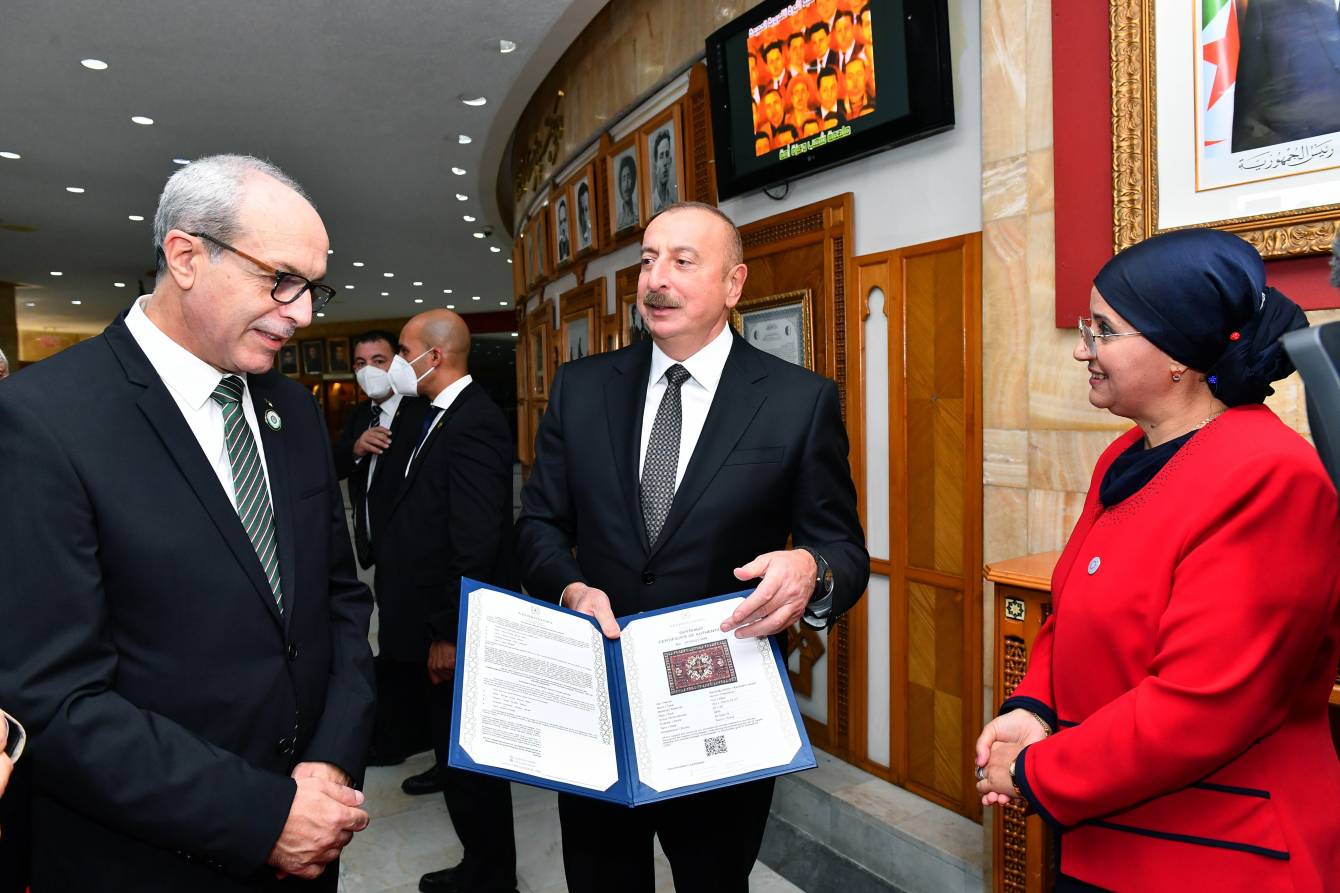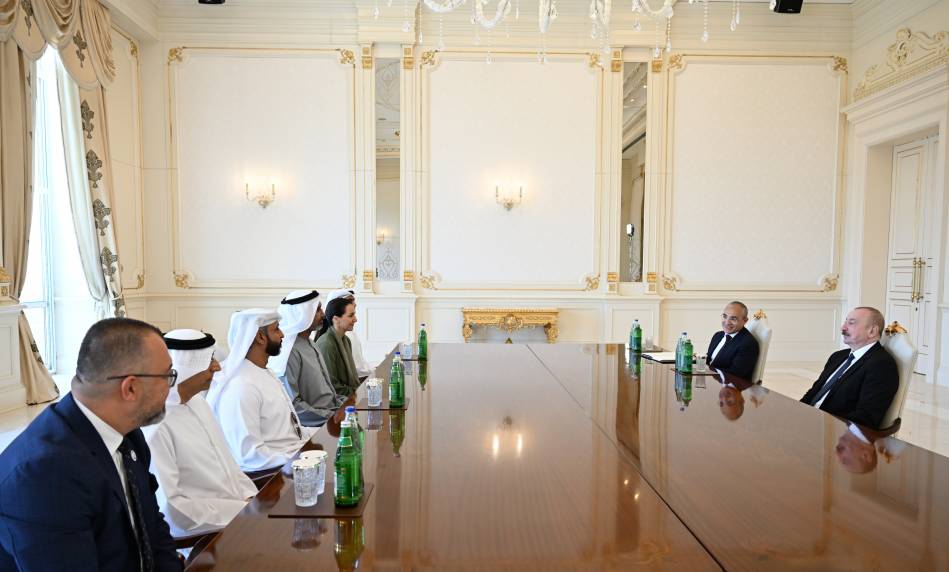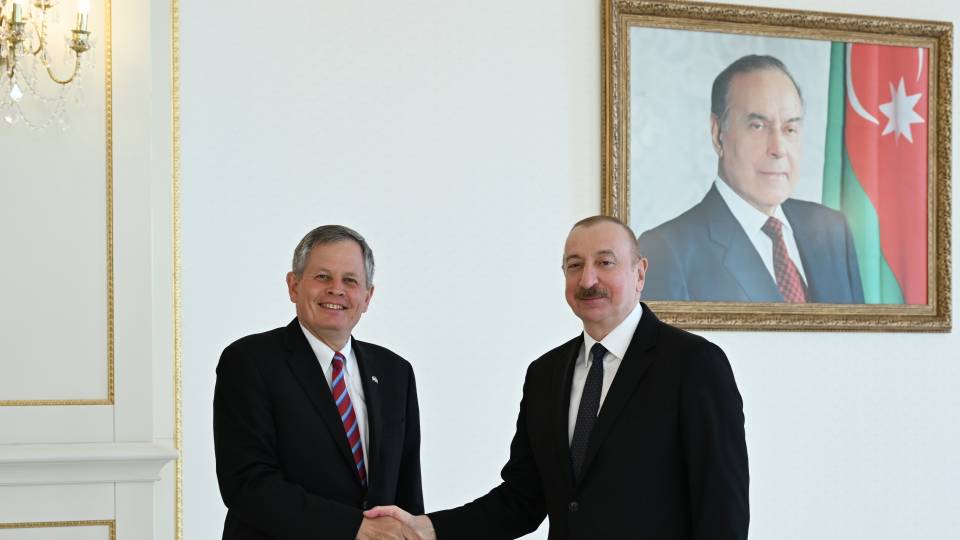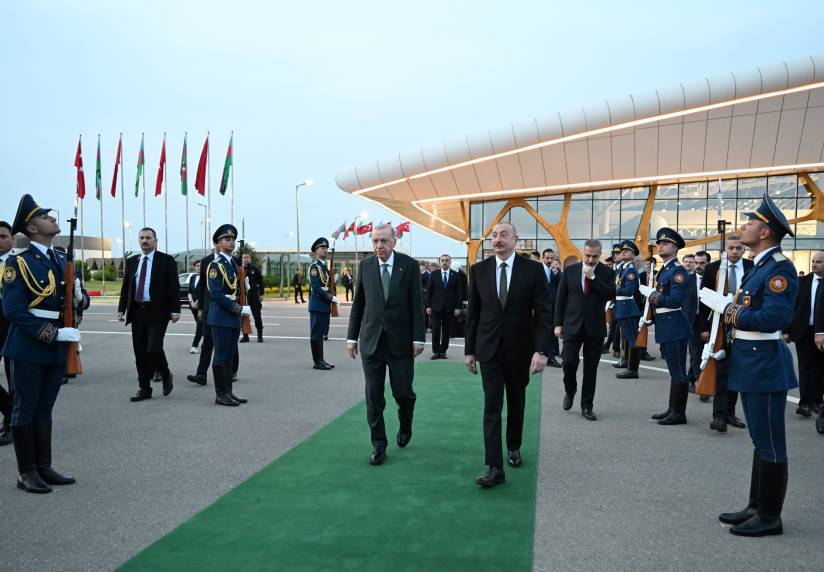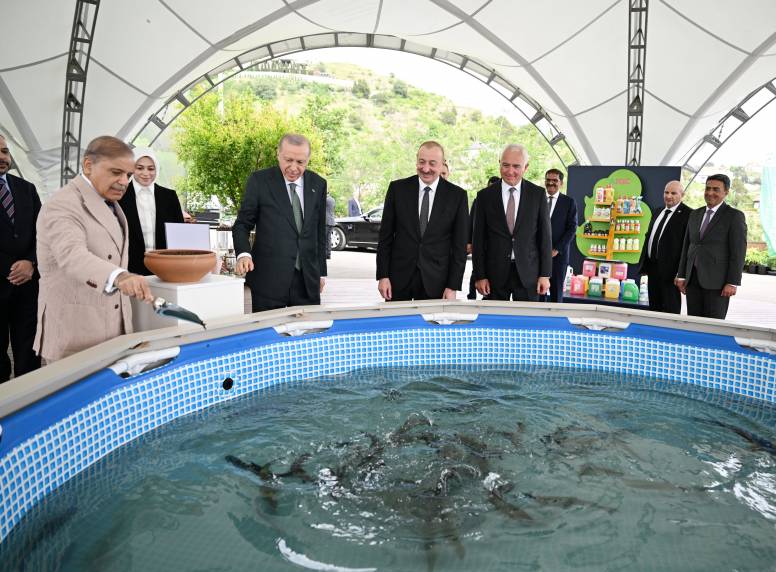President of the Republic of Azerbaijan Ilham Aliyev has visited the Martyrs Memorial and National Museum of Moudjahid in the capital city Algiers of the People’s Democratic Republic of Algeria.
A guard of honor was arranged for the head of state here.
President Ilham Aliyev laid a wreath at the memorial.
The Martyrs Memorial was opened on the occasion of the 20th anniversary of the country's independence in 1982. The monument is 92 meters high.
While touring the National Museum of Moudjahid, the President of Azerbaijan was informed that most of the collection of the museum, located within the Martyrs Memorial and opened in 1984, is dedicated to the occupation of the country by France and the popular resistance against French colonialism in 1830-1962. In addition to paintings, weapons, archival materials, and war items, photos and documents belonging to the Algerian Mujahideen who fought against colonialism, as well as the execution tools used by the French to punish the participants of the popular movement during the resistance period, are on display. The personal belongings and weapons of Amir Abdul Qadir (Abdul Qadir Ibn Muhieddine), who led the movement against French colonialism, his portrait painted by French artist Ange Tissier in 1853 and returned to the country by France only in 1976, are among the most popular collections of the museum.
Witness statements by more than 7,000 participants of the popular movement are collected in the museum.
The French mercilessly murdered more than 1.5 million people during the occupation covering the 1830-1962 period. This is why Algeria is called “a country of 1.5 million martyrs”. In total, about 10 million Algerians fell victim to the French colonial period.
The attitude of the French to Algeria was different from the other territories they occupied. Whereas other territories were considered to be colonies, Algeria was considered a part of France, its overseas territory.
The head of state then signed the memory book: “I am privileged to be visiting the People's Democratic Republic of Algeria for the first time and the National Museum of Moudjahid as an expression of my deep respect for the brotherly people of Algeria.
The National Museum of Moudjahid is an important complex that contains one of the most tragic and, at the same time, proud pages of the glorious history of the Algerian people. This museum is of exceptional importance in terms of preserving the memory of the colonial policy of unprecedented cruelty and violence against the Algerian people, war and crimes against humanity, the national struggle against colonial forces, and the victory of independence won at the cost of one and a half million martyrs. It is important from the standpoint of passing it on to future generations.
The struggle for freedom and independence, which started with the aim of getting rid of merciless colonial slavery, is forever engraved in the history of Algeria as a symbol of the great bravery, unity, unwavering will, and determination of the Algerian people.
As the leader of a friendly and brotherly country, I am very proud to see the development and prosperity of fraternal Algeria, which gained independence by making great sacrifices.
I would like to express my gratitude for the warm welcome shown to me at the National Museum of Moudjahid and wish success to the museum in perpetuating the heroic heritage of the Algerian people.”
Then an exchange of keepsakes was held.
X X X
Parallels can be drawn between France's policy in Algeria and Armenia's policy in Karabakh, which remained under occupation for nearly 30 years. This approach also underlies France’s pro-Armenian policy. France, which once refused to grant autonomy to more than 11 million citizens of the largest country in Africa and the Arab world, now demands independence for 15,000-20,000 Armenians living in Karabakh.
At the same time, the French army committed mass murders, numerous wars, and crimes against humanity against Algerians who demanded their freedom. The same crimes were committed against Azerbaijanis living in Karabakh and opposing the Armenian occupation. For example, in 1832, the El-Uffia tribe, which opposed the occupation of Algeria by France, was put to the sword while it was asleep. We observed a similar event in Khojaly in 1992. At that time, Armenia, which is supported by France, committed an act of genocide against the peaceful population of Khojaly at night. In addition, both France and Armenia used prohibited weapons during the war, violating the requirements of the Geneva Conventions.
Another tragedy brought about by France happened in October 1961. At that time, tens of thousands of Algerians demonstrated in Paris to condemn the French occupation. As a result of the French police shooting and throwing protesters into the Seine river, up to 1,500 Algerians were killed and more than a thousand people were arrested. This event went down in history as the “Seine massacre”. The French authorities have remained tight-lipped over this tragedy. The tradition of not assuming responsibility for the massacres committed by France seems to have spread to Armenia as well. The genocide and massacres committed against Azerbaijanis in Garadaghli, Aghdaban, Khojaly and other settlements in 1992-1993 are very similar to the massacres committed in Setif in 1945 and Paris in 1961. In both cases, the criminals did not take responsibility for the massacres. Another similarity between the policies of Armenia and France is related to the illegal settlement. Thus, to change the ethnic composition of the region in Karabakh, Armenians from the Middle East and other regions were moved by Armenia to the lands of Azerbaijan, while as a result of the illegal settlement policy in Algeria, 1 million of the country's population was made up of Europeans who had no bearing to these lands.
Another act of hypocrisy by France is the display of the skulls of 21,000 representatives of the colonized nations of this country in Paris museums. It is reported that 500 of those bones belong to Algerians. Today, mass graves and skeletons are being discovered in the liberated territories of Azerbaijan. All this shows that there are many “similarities” between France and Armenia, and none of them have been held accountable for their crimes. Double standards and hypocrisy seem to be the main line of French public policy. Today, this hypocrisy is disguised under the name of democracy.

